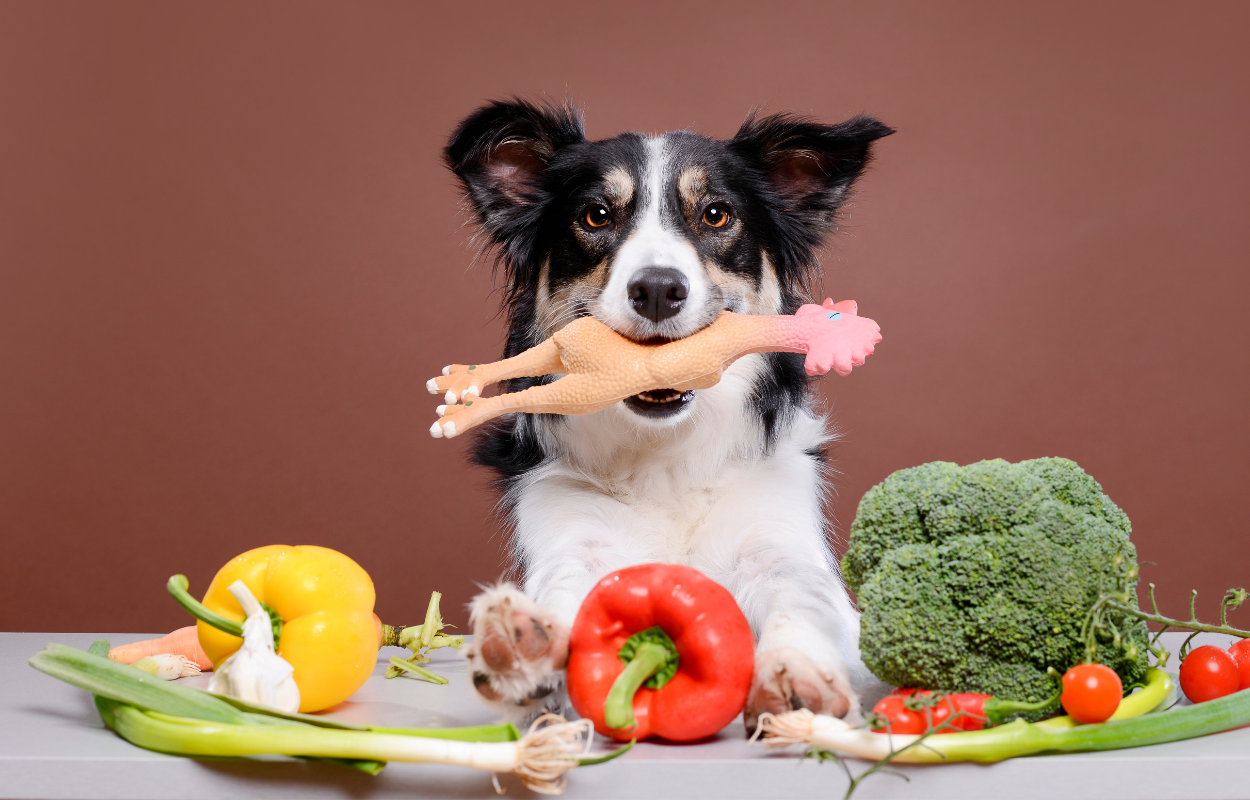
What Vegetables Can Dogs Eat?
April 22, 2022As a dog owner, maintaining your pet’s overall health is important and providing the right nutritional balance is a critical part of their wellbeing. Many of us think that dogs need meat for protein, but keep in mind that vegetables are also beneficial to keep them healthy as well. Because dogs digest food differently than humans, there are some foods that aren’t safe for them. Here is a list of vegetables that dogs can and cannot eat.
Can Eat
Broccoli

As an occasional treat, broccoli is safe for dogs to consume in very small amounts. It contains nutrients such as fiber and vitamin C. A note of caution, broccoli florets contain isothiocyanates, which may cause mild to severe stomach irritation in some dogs. In addition to this, broccoli stalks have been known to cause esophageal obstruction. You can serve broccoli steamed, boiled, baked, or raw. If serving it raw, make sure to clean it well as it may contain bacteria such as salmonella. Dogs and cats are not immune to these bacteria; they may become very ill. This is according to the Association of American Feed Control Officials.
Brussels Sprouts

Phytonutrients and antioxidants in Brussels sprouts make them beneficial for both humans and dogs. Low-calorie Brussels sprouts make a tasty, healthy treat for dogs. But don't overfeed your dog, as they can cause gas.
Carrots
Beta-carotene and fiber make carrots an excellent low-calorie snack. The orange veggie is great for your dog’s teeth and you’ll find it in many dog foods. Interestingly, dogs are unable to metabolize the nutrients in raw carrots. Carrots must be lightly steamed or cooked to receive their full nutritional benefits.
Celery

This crunchy green snack is packed with vitamins A, B, and C, as well as nutrients needed to support a healthy heart and even fight cancer. It is also known to freshen dog breath. Make sure the celery is organic or thoroughly washed before offering it to your dog. It is best to cut the celery stalks and leaves into small pieces to avoid it from becoming a choking hazard.
Green beans

Green beans are safe for dogs to eat whether they are chopped, steamed, raw, or canned, as long as they are plain. In addition to providing important vitamins and minerals, green beans are also rich in fiber and low in calories. Preferably give your dog fresh green beans and not canned.
Peas
All types of peas - green peas, snow peas, sugar snap peas, garden peas, and English peas - are fine for dogs to eat occasionally. Peas are packed with vitamins, minerals, proteins, and fiber. Fresh or frozen peas are fine for your dog, but avoid canned peas as they have too much sodium.
Spinach

It's true that dogs can consume spinach, but it's not among the top vegetables you should share with them. Oxalic acid is present in spinach, which blocks the body's ability to absorb calcium and may cause kidney damage. Even though your dog would probably need a lot of spinach to be affected, you might be better off choosing another vegetable.
Can’t Eat
Asparagus

Although asparagus isn't necessarily unsafe for dogs, there’s little value to your dog. Raw asparagus is hard to eat, and once cooked to make it soft, it loses most of its nutrients. It is probably best to share a more nutritional and beneficial vegetable with your furry friend.
Mushrooms

A dog cannot and should not consume wild mushrooms because they’re poisonous to them. Although only about 50-100 of the 50,000 mushroom species worldwide are known to be toxic, those that are can cause grave harm to your dog. The supermarket's white mushrooms might be fine, but it's better to steer clear from mushrooms altogether.
Onions

Leeks, chives, and onions all belong to the Allium family, all of which are poisonous to pets, especially cats. Dogs that consume onions can suffer from vomiting, diarrhea, stomach pain, and nausea, as well as red blood cell rupture. Dogs such as Akitas and Shiba Inus are more susceptible to onion poisoning, but all dogs are at risk.
Adding vegetables to your dog’s diet can be beneficial for them. Vegetables are low in calories with fiber and vitamins, making them a healthy treat for your best buddy. This list of vegetables can be helpful to determine if a certain vegetable is safe for your dog. Remember it’s always a good idea to also check with your vet first if you have specific questions about your pet’s nutrition.
Salmon Oil for Dogs
Vegetables are a great part of diet for our dogs as they are rich in vitamins and minerals. Your dog can also benefit from salmon oil. Dogs can benefit from salmon oil as a natural nutritional supplement. Omega-3 fatty acids are the main reason for harvesting the oil. Omega-e fatty acids are essential for keeping your dog's coat smooth and shiny. Furthermore, it eliminates itching, regardless of what caused it. Salmon oil also improves your dog's immunity system, keeps their hearts healthy, helps produce collagen, and much more.
Ever wonder what fruits are safe and not safe for your dogs too? Check out our article: What Fruits Can Dogs Eat?
